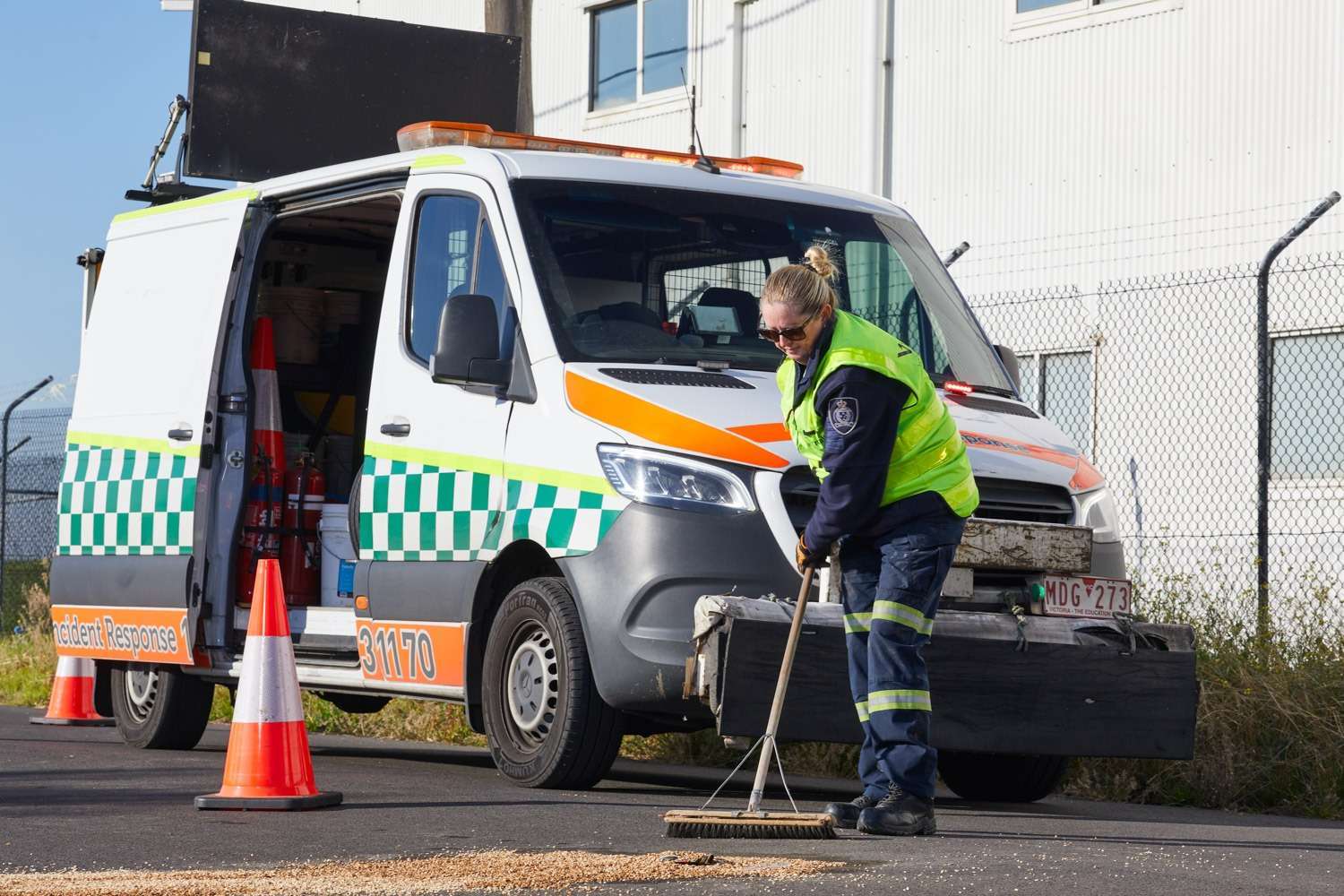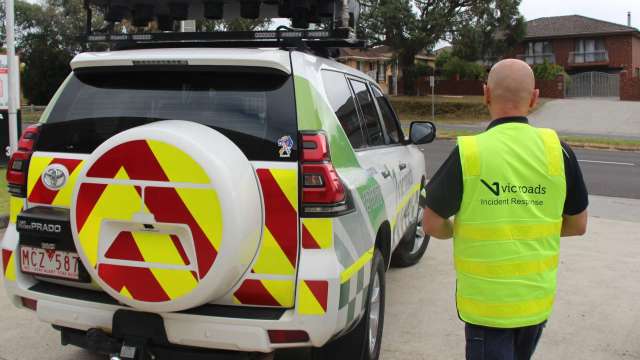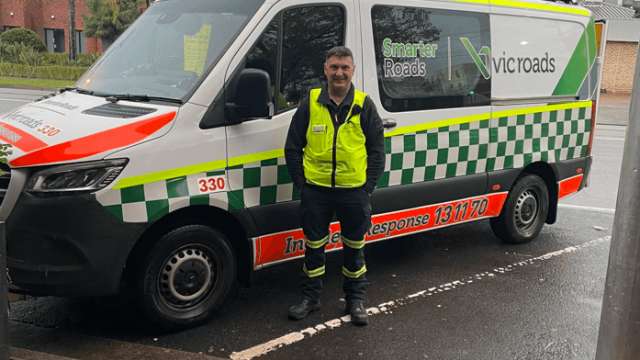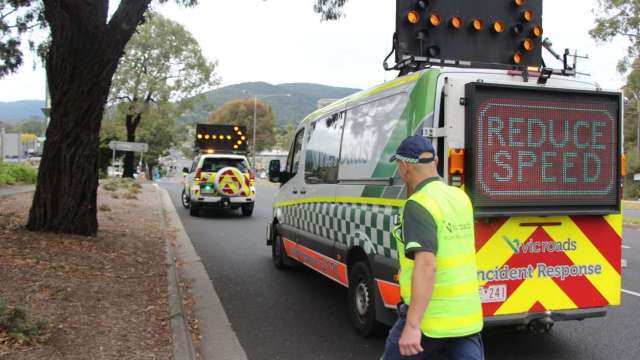Working around the clock
Our IRS officers work 24 hours a day, seven days a week, every day of the year, proactively patrolling Melbourne’s road network, checking and clearing everything from broken down vehicles and major traffic incidents, to debris from fallen loads and stray wildlife.
As well as physically clearing roads and attending to incidents, the teams provide calm and compassionate assistance to people parked on the roadside who may have a health issue or have broken down. Our officers are able to check on their welfare and, if needed, ensure they move to a safer location.
All staff are fully trained in first aid, including CPR.
Patrolling more roads, more often
With the Smarter Roads program adding an extra 12 on-road officers to the team and six new Mercedes-Benz Sprinter vans to the fleet, the IRS can patrol more of our road network more often.
The new Smarter Roads officers work across Melbourne's arterial roads, freeways and highways, working to ease congestion and keep road users and themselves safe.
Since January 2020, our IRS officers have responded to more than 100,000 incidents, at an average of 90 incidents per day, typically responding within 5 minutes of being alerted.
About a quarter of incidents occur on arterial roads and they mainly involve vehicle breakdowns.
The new Incident Response vans are filled with an array of tools and equipment so our officers can handle almost any situation. This includes traffic cones, brooms, shovels, crow bars, absorbent sand for spills, a trolley jack and wheel brace for tyre changes, towing straps, bow saw, chainsaw, jump start pack and leads together with extra fuel for motorists stranded with an empty tank.
Two-way radios and live-feed cameras mounted to the front and rear of the vehicles are used to provide the Transport Operations Centre with real-time incident information as well as providing additional safety controls for officers.
Every day is different for the Incident Response Service. Helping motorists is hugely rewarding for our officers and the service contributes to keeping Melbourne’s traffic flowing as smoothly as possible.
CCTV cameras on vehicles
CCTV cameras are installed on some Department of Transport and Planning vehicles for operational and safety purposes.
The cameras are installed on vehicles used by the following teams:
Incident Response Service, which patrols Melbourne’s transport network, clearing incidents and helping maintain traffic flow.
Traffic Management Compliance Officers who audit compliance of temporary traffic management at roadworks.
Footage is used to improve the oversight for the Transport Operations Centre, providing real-time and recorded footage of events on the network to help clear incidents and congestion, and to improve safety for the officers on the ground.
The data is handled in accordance with the Department Of Transport and Planning Privacy Policy, which can be viewed at: https://dtp.vic.gov.au/privacy/privacy-policy.
Boots on the ground
Get the inside stories on how our Incident Response Officers go about their daily work to keep people safe and traffic moving...





